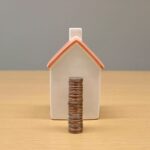Most homeowners have at least a question about whether their home insurance policy covers mold damages or not. Fungal development is an undesirable and financially costly concern in most homes. In this article we will discuss the factors related to home insurance coverage of mold and what you should expect from it.
What is the Mold and How Does it Grow
Mould is a fungus that grows in areas that are usually wet or_humidified. This it does by consuming organic matter like wood, drywall and insulations. Mold growth can occur due to various reasons, including:
- Leaking pipes, floods, humidity, high humidity, dew, and condensation
- Poor ventilation
- High humidity
- Poor maintenance
Is Mold Included in Home Insurance?
Mold damages are usually covered under home insurance policies also with some prejudice and exceptions. The coverage depends on the kind of policy and the events culminating to mold formation in the homes.
The Several Policies of Home Insurance
There are two main types of home insurance policies:
Named Peril Policy: Deals with losses resulting from particular types of risks explained in the policy terms, including fire, lightening or theft.

All-Risk Policy: Provides for all those losses that occur as consequence of any risk except for the ones that are expressly listed as being impossible to cover.
Mold Exclusions in Homeowner’s Insurance
Most home insurance policies cover mold damage if it is caused by a covered peril, such as:
Water damage: The policy may also cover the costs of mold if it emanates from water damage from a covered peril for instance a burst pipe or roof leakage.
Hidden damage: In particular, if mold appears during repairs or improvements and it is decided that the damage was concealed and not visible, then this policy may be compensated.
However, home insurance policies often exclude mold damage caused by:
Maintenance-related issues: If the mold growth is because of lack of maintenance practices such as failure to repair a dripping tap or poor airing, the policy may not cater for the debris.
Gradual damage: Mold reduction occurs when the structure suffers a steady deterioration, for example, a drip or humidity—this kind of damage may not be compensated by the policy.
Flooding: In aspect to flooding which is not usually covered under standard home insurance if mold growth is attributed to this then the policy will not cover the damage.
How to Get Mold Coverage
If you are concerned about mold growth in your home, consider the following options:
Endorsements: Combine this with an existing policy but which insures for damages caused by mold.
Specialized policies: Buy an endorsement of a specific policy that addresses mold damage for instance a mold remediation policy.
Flood insurance: If you reside in a zone where you are likely to experience floods, you may need to take an insurance policy which insures against mold resulting from floods.
What to do if you have found Mold
If you discover mold in your home, follow these steps:
Contain the affected area: Cover it with plastic sheets or Tarras to maintain an isolation in order to minimize growth in other areas.
Notify your insurer: Report your claim to insurance company as this is the beginning to the process of filing the claim.
Hire a professional: Hire a professional mold remediator to inspect and provide remedy for any extent of mold growth.
Document the process: The documentation of the remediation work done should include pictures and videos and receipts where necessary.
Preventing Mold Growth
There is nothing we can do to eliminate the appearance of mold, but we can take certain measures so that the appearance can be as minimal as possible, in order to eliminate it from appearing in homes. Mould control is achieved through influencing the threats that causes it – moisture and poor ventilation as well as ensuring good housekeeping practices. Here are some effective ways to prevent mold growth:
1. Control Moisture
Fix Leaks Promptly: Fix any leakage problems you may have with water or condensation as soon as possible. Look around pipes under the sink, around toilets and near appliances, walls and floors. You can contact us here.
Improve Insulation: See to it that your home is insulated to avoid getting into a condensation stage. Examine the level of attic, wall and floor insulation.

2. Improve Ventilation
Ensure Good Airflow: Unlock your doors and windows so as to help circulate fresh air in the home after showering or cooking.
Use Ventilation Systems: Use whole house ventilation or heat recovery ventilation if you are planning to construct a new home.
Upgrade Windows: These include suggestions offered to replace old windows with efficient, moisture control windows.
3. Maintain Good Housekeeping
Clean and Disinfect: Schedule the cleaning and disinfection of your home often and especially where there is dampness.
Dry Wet Areas: Clean up the floors of the laboratories or rooms that contain some form of wet area, for example, the washrooms, or kitchen after use.
Reduce Clutter: Organize your space and make beds utilization for personal property eliminate items on surfaces to enhance air circulation and prevent moisture.
Use Mold-Resistant Products: In areas that may contain moisture, one should use mold resistant products for things like paint and caulking.
Conclusion
Mold is usually covered under home insurance policies, but it must be appreciated that there are always restrictions and exemptions. Understanding what is and isn’t covered can help you protect your home against mold in the first place and be prepared if you do experience mold damage. Always look over the policy, check for other endorsements you might need, and special policies that will help when it comes to mold removal.



Pingback: How Construction Loan Calculators Work? Cashaura.com